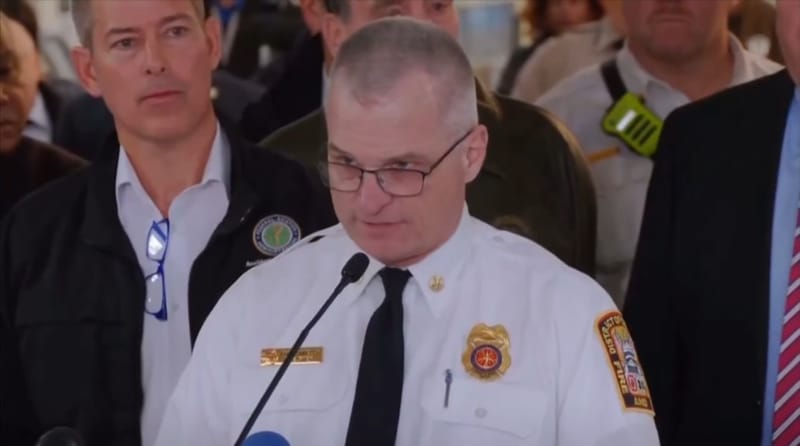Trump Invokes Home Rule Act, Seizes Control of D.C. Police to Combat Crime
National Guard Deployed as President Declares “Liberation Day” for Nation’s Capital August 11, 2025 Washington, D.C. - In a bold and controversial move, President Donald J. Trump announced on Monday, August 11, 2025, that he is invoking Section 740 of the District of Columbia Home Rule Act to
National Guard Deployed as President Declares “Liberation Day” for Nation’s Capital
August 11, 2025
Washington, D.C. - In a bold and controversial move, President Donald J. Trump announced on Monday, August 11, 2025, that he is invoking Section 740 of the District of Columbia Home Rule Act to place the D.C. Metropolitan Police Department under direct federal control. Speaking at a White House press conference, Trump declared, “This is Liberation Day in D.C., and we’re going to take our capital back,” citing what he described as rampant crime, violence, and homelessness plaguing the nation’s capital. The president also confirmed the deployment of 800 National Guard troops to patrol Washington, D.C., to “re-establish law, order, and public safety.”
The decision, which Trump framed as a response to a “crime emergency,” marks a rare use of the Home Rule Act of 1973, which allows the president to temporarily assume control of the D.C. police force under “special conditions of an emergency nature.” The executive action places U.S. Attorney General Pam Bondi in charge of the Metropolitan Police Department, effectively sidelining D.C. Mayor Muriel Bowser for the duration of the order, which is initially set to last 48 hours but can be extended to 30 days with congressional notification. Any extension beyond 30 days would require congressional approval.
BREAKING: DC will now be under FEDERAL control, the National Guard will be deployed
— Libs of TikTok (@libsoftiktok) August 11, 2025
"This is liberation day in D.C. and we're gonna take our capitol back!" - President Trump pic.twitter.com/RbShJTQlkD
Trump’s announcement follows a series of high-profile incidents, including the recent assault of a former Department of Government Efficiency staffer, Edward Coristine, during an attempted carjacking, and the killing of a 21-year-old Congressional intern. The president pointed to these events as evidence of “out-of-control” crime, claiming that Washington’s murder rate exceeds that of cities like Bogotá and Mexico City. However, official statistics from the Metropolitan Police Department contradict these claims, showing a 35% drop in violent crime in 2024 compared to 2023, marking a 30-year low.
The move has sparked intense debate, with critics arguing it represents an overreach of federal power and an assault on D.C.’s limited self-governance. D.C.’s non-voting House Delegate Eleanor Holmes Norton called the decision “an egregious assault on D.C. home rule,” emphasizing that the city’s 700,000 residents are “worthy and capable of governing themselves.” Democratic lawmakers, including House Minority Leader Hakeem Jeffries and Senator Chris Murphy, labeled the action a “power grab” and a distraction from other controversies, including Trump’s handling of the Jeffrey Epstein case files. Meanwhile, Republicans like House Speaker Mike Johnson and Senator Josh Hawley praised the move, with Johnson stating, “President Trump is RIGHT. We can’t allow crime to destroy our Nation’s Capital.”
Trump also used the press conference to address homelessness, declaring that the administration would “get rid of the slums” and relocate homeless individuals “far from the Capital.” He further expressed intentions to crack down on youth crime, referencing “caravans of mass youth” and advocating for harsher police tactics. These statements have raised concerns among civil rights advocates, who warn of potential harassment targeting homeless individuals, immigrants, and minority youth.
NOW - Trump says that he may take control of New York, Chicago and other cities just like DC. pic.twitter.com/7ZyxVb17bW
— Disclose.tv (@disclosetv) August 11, 2025
Legal experts note that while Section 740 grants the president authority to control the D.C. police temporarily, a full federal takeover of the District’s government would require Congress to repeal the Home Rule Act—a challenging prospect given the need for 60 Senate votes, including Democratic support. A bill introduced by Senator Mike Lee and Representative Andrew Ogles to repeal home rule currently lacks sufficient co-sponsors to advance.
D.C. Mayor Muriel Bowser has not yet commented publicly on the announcement, though she previously noted the decline in violent crime since 2023. As National Guard troops begin patrolling areas like Dupont Circle and Malcolm X Park, residents brace for an increased police presence and potential legal challenges to Trump’s actions. The move underscores the unique vulnerability of D.C.’s governance, which, unlike states, operates under congressional oversight and lacks full autonomy.
As the nation watches, the implications of Trump’s invocation of the Home Rule Act could reshape the balance of power in Washington, D.C., raising questions about self-governance, public safety, and the president’s broader agenda for the capital.



